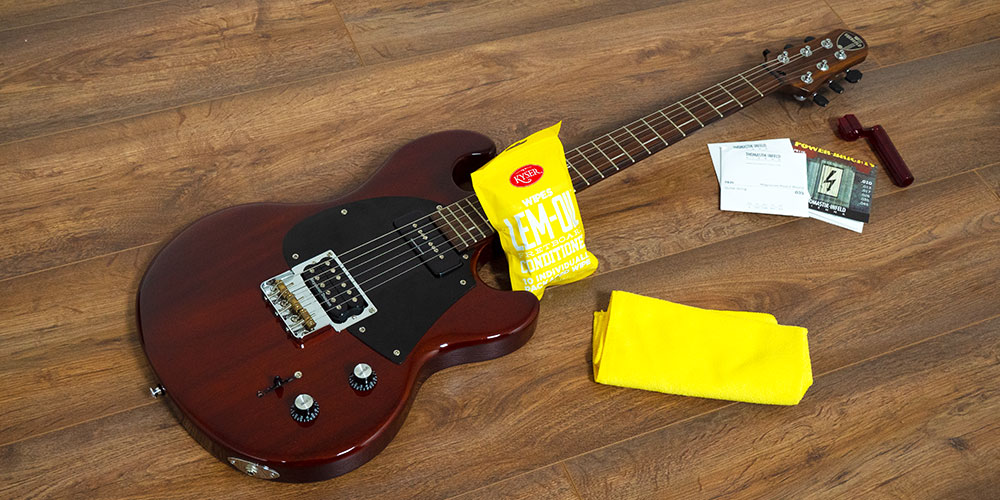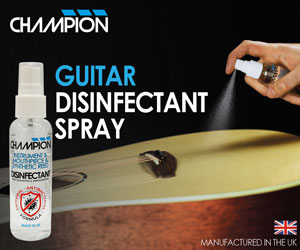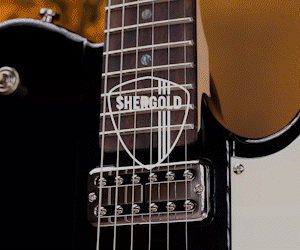The Ultimate Guide to Caring for Your Guitar

Most guitar content involves songs, techniques, history, and music theory. These are all essential topics, but we cannot overlook the maintenance and work that goes into keeping a guitar for many years. Even if you are just starting out with beginner guitar lessons, basic guitar maintenance can be crucial. In this guide we will look at some steps and methods to care for your guitar.
START WITH THE RIGHT GUITAR
The number one mistake guitar students make is buying a cheap guitar. Sometimes people buy an inexpensive guitar thinking it will give them an idea if they like it or not. That whole concept is doomed from the very start!
If a guitar is not built correctly it will not sound right! The intonation must be perfect, this means that every fret should play the correct note relative to the tuning. A cheap guitar will not be intonated well, and your barre chords will always sound bad. If the neck is bent too far in or outward it will also cause dead strings or be impossible to fret. It will cause pain in your fingers and the feeling of failure.
When you do buy online, pay close attention to reviews, and see if other customers mention problematic builds or tuning issues. You must buy a moderately priced guitar to have a playable instrument.
- Check if the wood is solid or laminate, solid is always better.
- Use a tuner to check the intonation on different frets if possible. Make sure the octave is at least the same note.
- Strings make a huge difference, get the best ones you can.
- Make sure the neck has the slightest inward bow so that all the frets are not dead or muted when played.
- If it has electrical components make sure they work and are not scratchy.
- A hard case is an important investment and offers the highest level of protection.
BASIC GUITAR MAINTENANCE
There is a huge variety of guitars to choose from these days; acoustics have different woods and composite materials, while electrics have different pickup configurations and neck builds. Regardless of your guitar the best care is keeping it clean and preventing future problems.
BEFORE PLAYING YOUR GUITAR
Assuming you have bought a decent guitar, the best course of action is to have a professional set it up. They will adjust the intonation and action, or how hard it is to press down on the strings. Sometimes beginner guitar players think the instrument is too difficult to play, when the action is simply too high. Getting the guitar set up will help the instrument be as efficient to play as possible. If you can’t afford a pro setup, it is possible to do it on your own. Just avoid crazy beginner mistakes like messing with a truss rod and keep it simple!
- Put new strings on one at a time. This keeps tension on the guitar and allows you to reference where you are. Use a tuner that will give you the octave and note.
- If the intonation is off, an electric can be adjusted, and the process isn’t too labor intensive.
- Make sure the tuning doesn’t change, it should take a lot of playing or temperature changes before it detunes. If it changes fast the gears are bad.
- A guitar fretboard cleaner and treatment are perfect to protect the neck before you even start playing.
- Washing your hands before you play will also keep some grease and dirt away.
DURING & AFTER PLAYING YOUR GUITAR
During and after playing are the most likely times of damage, this is when dings, holes, and gunk will show up. It’s easy to just throw it in the case but it will last longer if you do a little maintenance.
- Be careful where you are playing, make sure you will not move and swing the neck or body into someone or an object like a mic or music stand.
- Retune the guitar, that way next time you play you can get an idea of the environment conditions. A more drastic tuning difference likely means a bad storage area.
- Wipe the fretboard and strings down with a cloth, don’t overdo the cleaners and treatment once you’ve put them on.
- If you have electronics, an air duster can help keep debris away. Further de-oxidizing cleaners can help clean scratchy pots.
- If you deep clean the guitar at least every few months, you will not have to do major maintenance after playing.
- All-purpose guitar cleaners work great for cleaning the guitar. Research your finish and wood if you want to do a deeper polish, as some oils are not suited in all cases.
LONG TERM CARE & TRAVEL
These two factors are related as they both involve more investment and preparations for others to handle your guitar. Unfortunately, when it is home you have more control over your guitar, once it is on a plane or bus, it is in the hands of fate.
LONG TERM GUITAR CARE
- Guitars (especially acoustic) will last longer if they are in a humidity-controlled case. This helps keep the wood from rotting, or drying out and cracking
- Electronic components on guitars will also be damaged if in too moist of an area, make sure it is in a case and in a stable environment that will last.
- If you don’t plan on playing for a while, detune the strings a little to ease long term tension and any neck issues.
- It will still need occasional maintenance and cleaning, if it sits for a very long time with no care, it may be irreparably damaged.
- If it has been very long, change your strings once you play again! In fact, after a half year or more it may need another setup.
TRAVELING WITH YOUR GUITAR
If you aren’t traveling far, your regular hard case or a good quality, padded gigbag with neck support will be fine. However, if others will be handling the guitar you should invest in a super heavy duty travel case, one that is built like a tank!
- If traveling far, do not attempt to pack the guitar in boxes or cases that are not meant for it.
- Make sure your hard travel case has multiple identifying marks in case it is lost. Be sure the inside is even labeled and always keep your serial number and other info separate.
- When you are playing in an unfamiliar environment, pay more attention. There is a greater chance of body damage in new and stressful stage situations.
- Never leave the guitar unattended. Musical instruments are prime targets of criminals, especially in the more tourist driven areas.
Most guitar care is very simple, especially if you prevent any issues from arising. Usually when a guitar is damaged from an accident or the environment, it is because we let our guard down and did not pay attention. So don’t be cheap or lazy in your guitar care and maintenance and it will likely be a playable instrument for many years to come!
-
Content courtesy of Shawn Leonhardt of Guitar Tricks and 30 Day Singer










